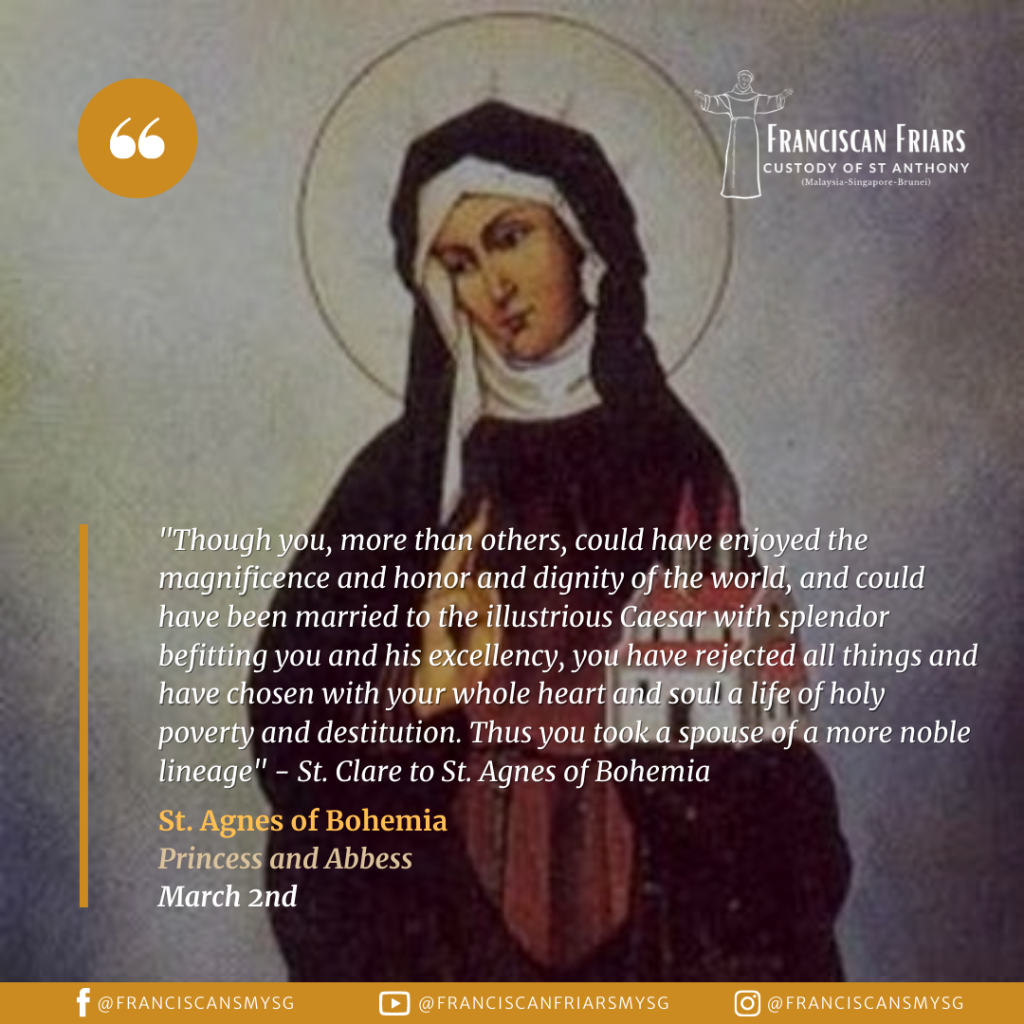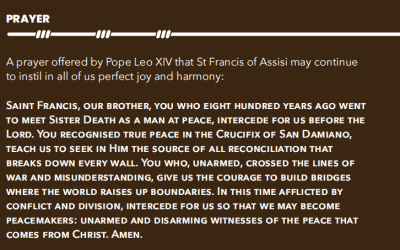
Agnes was born in Prague, where her father was the king of Bohemia. Despite the privileges of her station, she enjoyed no freedom to decide her own destiny. She was simply a commodity to be invested wherever she might bring the highest return for her family and its dynastic interests. Starting at the age of three, she was shipped to various kingdoms and betrothed to strangers she had never met. Through chance or providence, all these arrangements came to naught. Finally, when she was to be paired with King Henry III of England, she wrote to the pope asking him to prevent the marriage on the grounds that she wished to consecrate herself to Christ. Surprisingly, Henry yielded, granting, “If she had left me a for a mortal man, I should have made my vengeance and left, but I cannot take offense if she prefers the King of Heaven to me.”
What inspired this bold intention? Agnes had been deeply affected by the arrival in Prague of the first Franciscan friars, followed shortly by five Poor Clare sisters. In 1236, her royal life behind her, she formally joined them. Agnes received a number of personal letters from St. Clare, a precious window on the early Franciscan movement. Clare addressed Agnes as “the half of her soul and the special shrine of her heart’s deepest love.” Speaking as a “mother” to “her favorite daughter,” she commended Agnes for the poverty she had chosen, thus securing a place on “the path of prudent happiness.” “Place your mind before the mirror of eternity!” she counseled her. “Place your soul in the brilliance of glory! Place your heart in the figure of the divine substance! And transform your whole being into the image of the Godhead itself through contemplation.”
Agnes spent forty-four years as a Poor Clare and inspired many other noble women in Europe to follow her example. She died in 1280 and was canonized in 1989.
Source : The Franciscan Saints (Franciscan Media)





0 Comments